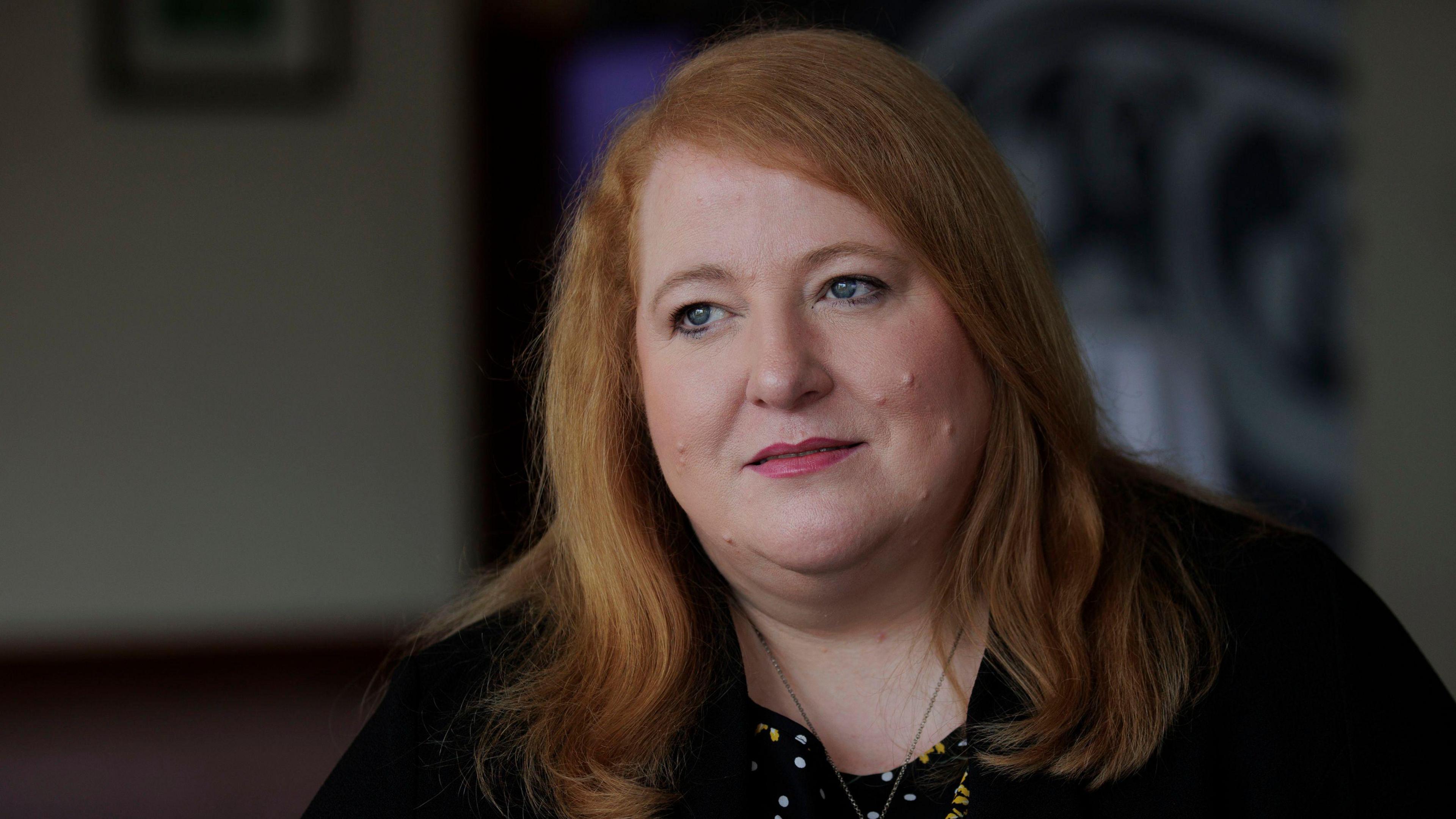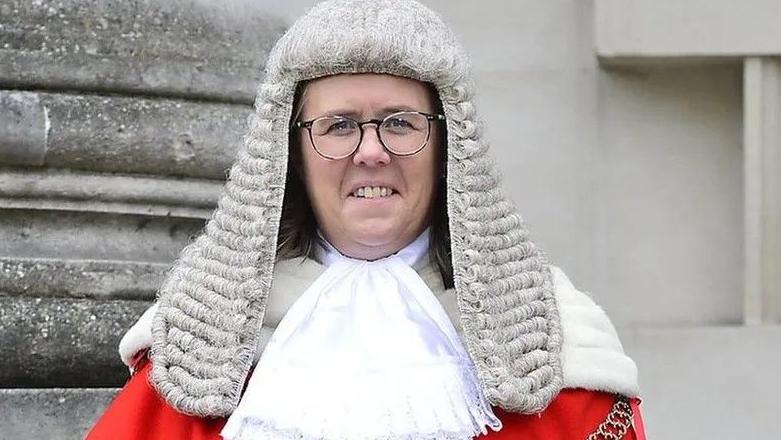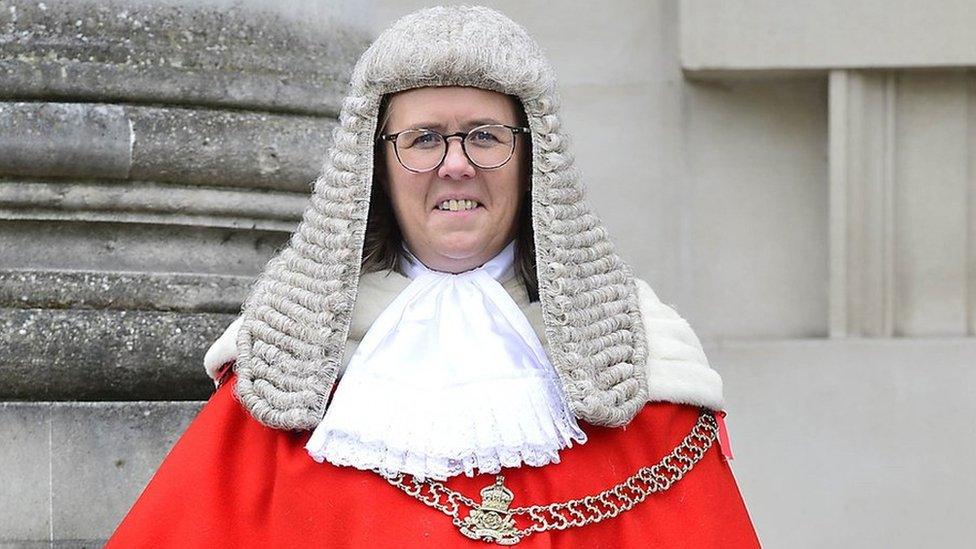Some court proceedings to be broadcast under Stormont plans

Naomi Long stressed that privacy safeguards would remain in place
- Published
Broadcasters will be allowed to show judges delivering sentences in some court cases in Northern Ireland, under proposals from Stormont's Department of Justice.
Justice Minister Naomi Long said the move would "increase transparency" in court proceedings and help to promote "public confidence" in the justice system.
But she insisted it was not about "turning our courts into livestream entertainment" and stressed that privacy safeguards would remain in place.
"Members of the public, including victims, witnesses and jurors, will not be filmed or recorded," the minister said.
The proposed changes, which require legislation, would include the broadcasting of Court of Appeal rulings, Crown Court sentence remarks and possible exchanges between judges and lawyers.
Courts in England, Scotland and Wales already allow the broadcasting of some proceedings in certain circumstances.
Last year, a pilot scheme was introduced in Northern Ireland allowing broadcasters to film Court of Appeal judgements for the first time.
Northern Ireland's most senior judge, the Lady Chief Justice Dame Siobhan Keegan, said she was impressed with the footage and wanted to expand the coverage.
However, legislative change was needed to roll it out and at the time she expressed disappointment that it could take until 2027 for the law to be updated.
On Monday, the Department of Justice said it would "work closely" with the Office of the Lady Chief Justice to develop the plans.

Lady Chief Justice Dame Siobhan Keegan is in favour of expanding camera coverage
The broadcasting proposals follow the result of a public consultation on the issue which has been released by the Department of Justice.
Confirming the plans, the minister explained the changes would "simply provide another way for journalists to cover proceedings on which they can already report".
"Allowing broadcasting in courts will increase transparency and allow the public to view decisions being made by the judiciary in Northern Ireland," Long said.
"This can only be a good thing, however, I am aware some respondents to the public consultation did express concerns about the impact of the proposals on victims and children."
The justice minister explained that existing reporting restrictions "will continue to apply regardless of how proceedings are reported upon".
Under the plans, individual judges would have the power to allow or refuse permission to broadcast the outcome of cases they preside over.
"This is not about turning our courts into livestream entertainment; it is about improving public confidence in our justice system and, as always, victims and witnesses will remain at the heart of everything we do," Long said.
Related topics
- Published9 February 2024

- Published5 September 2024
